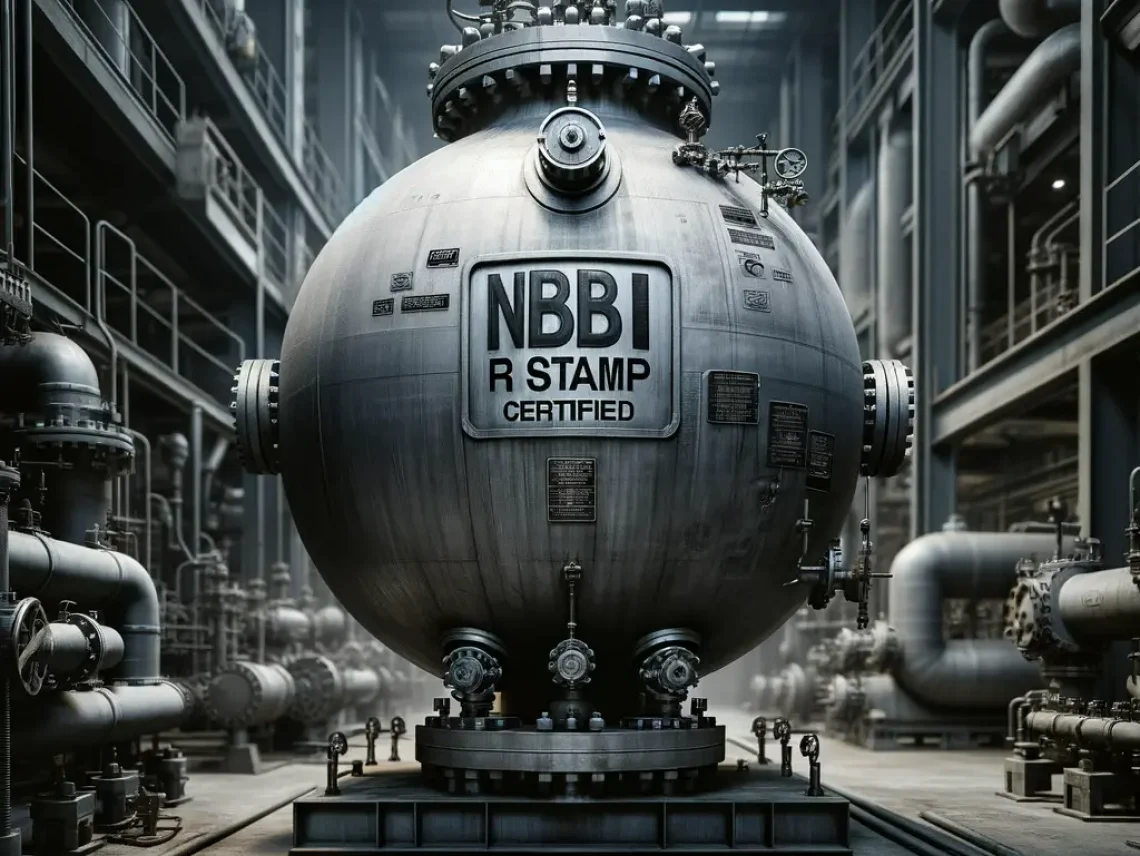
In today’s industrial sector, being R-stamp certified isn’t just a compliance checkbox—it’s a mark of unwavering quality and safety in pressure vessel repair and alteration. This designation, governed by the National Board of Boiler and Pressure Vessel Inspectors (NBBI), ensures that any certified facility maintains meticulous standards throughout every phase of repair and alteration.
Being R stamp certified signals expertise in repairing pressure-retaining equipment like boilers and vessels. These repairs follow stringent protocols to prevent catastrophic failures. For a deeper dive into the NBBI’s standards and certification process, check out the NBBI official site’s R stamp overview.
Robust Documentation & Quality Systems
Submit a comprehensive Quality Control (QC) manual that outlines procedures and compliance aligned with NBIC (National Board Inspection Code).
Employ at least one full-time National Board Commissioned Inspector.
Maintain meticulous records of all repairs and alterations.
Qualified Personnel & Ongoing Training
Certified welders need qualification per the ASME Boiler and Pressure Vessel Code.
Supervisory staff must have significant experience and training.
Regular competency training programs are critical to stay aligned with evolving industry guidelines.
State-of-the-Art Equipment & Facility Standards
Must have proper tools, machinery, and infrastructure to execute repairs safely and effectively.
Strict safety protocols and internal audits are mandatory.
Facilities will undergo inspections by the National Board or its authorized agents.
Application Process & Renewal
Start with an internal gap assessment followed by application submission to the National Board.
After successful review and inspection, certification is granted.
Renewal is annual, requiring updated audits and demonstration of continuous compliance.
For additional clarity on renewal timelines and nuances between repair vs. manufacturing stamps, explore ASME’s comparison of R stamp vs U stamp. Here’s a helpful breakdown by Red River
Credibility & Trust: Demonstrates a proactive commitment to safety—becoming a sales asset in markets like oil & gas and power generation.
Competitive Advantage: Qualifications like R stamp can be prerequisites in large-scale tenders and contracts.
Risk Reduction: Helps prevent equipment failures through regular oversight and compliance measures.
To help your clients understand how Red River supports R stamp projects, here are some relevant pages:
R Stamp Certification Guide — Understanding the R Stamp: A Comprehensive Guide
Discover our certified pressure vessels, engineered using cutting-edge technology and expertise: Pressure Vessels
Understand our broader solutions, from prefabricated spools to modular skids, built with R-stamp precision in mind: Solutions
You’re not just repairing a vessel—you’re maintaining its integrity, ensuring safety, and building trust. Being R-stamp certified goes beyond regulatory compliance; it’s a testament to your commitment to excellence and reliability in every weld, audit, and repair.
Partner with Red River—a facility deeply rooted in American values who delivers pressure vessel fabrication and repairs that stand the test of time. Our expertise ensures you meet every requirement with confidence. Contact us today to get your certification process started.
It means a facility is authorized under NBBI/NBIC standards to repair and alter pressure vessels and boilers with documented quality systems and certified professionals.
Renewal is annual and involves re-auditing your QC systems, personnel, and facility to ensure ongoing compliance.
Each location must independently meet NBBI requirements and be approved following a site-specific inspection.
R-stamp certification underscores both safety and quality in pressure vessel repairs.
You need a robust QC system, certified personnel, proper equipment, and up-to-date documentation.
Renewal is annual—not a one-and-done process.
Red River offers full support in helping you achieve and maintain R-stamp compliance.
In the realm of industrial solutions, Red River emerges as a pioneer, offering a diverse range of custom-engineered products and facilities. Among our specialties is the design and production of Custom/OEM Pressure Vessels, meticulously crafted to meet individual client requirements, ensuring performance under various pressure conditions. Our expertise extends to the domain of prefabrication, where Red River leads with distinction.
The company excels in creating prefabricated facilities, modules, and packages, reinforcing its stance as a forerunner in innovation and quality. This proficiency is further mirrored in their Modular Skids offering, where they provide an array of Modular Fabricated Skid Packages and Packaged equipment. Each piece is tailored to client specifications, underlining their commitment to delivering precision and excellence in every project they undertake.